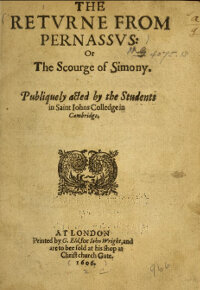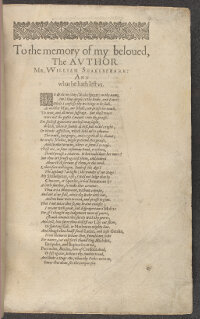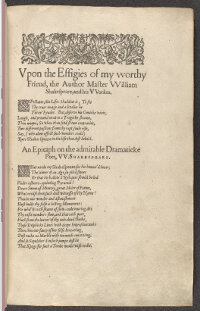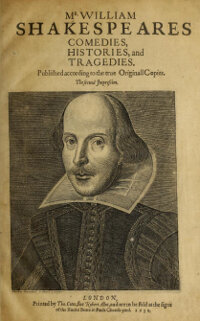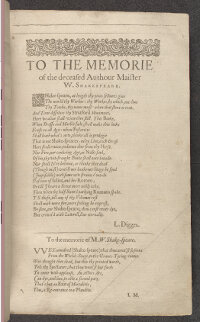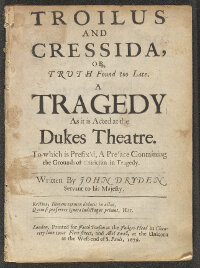or The scourge of simony : publiquely acted by the students in Saint Johns Colledge in Cambridge
Anonymous
London: Printed by G. Eld, for Iohn Wright, and are to bee sold at his shop at Christ church gate, 1606
One of three related satires performed at Cambridge around 1599/1600. The plays follow two students trying to find a job after college. Recent scholars have argued that one of the characters, Studioso, may be a parody of Shakespeare himself. Be that as it may, it is certainly true that another character, the poetry-loving patron Gullio, is a great admirer of “sweet Mr. Shakespeare,” asking for a picture to “worship” and put “under my pillow.” In this, the third satire, Shakespeare is mentioned again as a pacifier of Ben Jonson in the War of the Theatres. —VH
